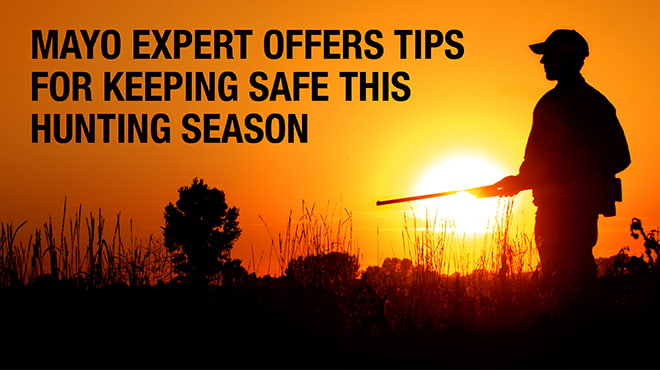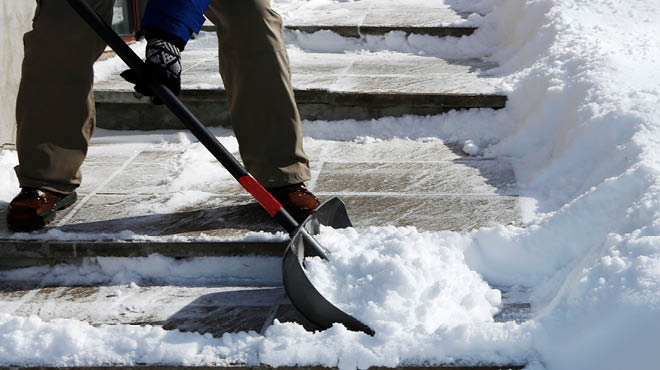Recent Posts
Aim for a safe, healthy hunting season

Whether it's the challenge of stalking big game, carrying on a family tradition or just enjoying one last outing in the great outdoors before winter, aim for a safe, healthy hunting season. No one wants their time in the woods or fields spoiled by an accident.
While gunshot wounds would appear to be the biggest risk, the most common hunting accidents involve broken bones, or head or other injuries caused by falls from tree stands.
Studies show:
- One-third of all hunters will fall from a tree stand.
- Bowhunters have higher rates of falls than firearm hunters.
- About 3,000 tree stand-related accidents in 2018 resulted in injuries, according to the Tree Stand Safety Awareness Foundation.
- A recent review of the University of Wisconsin Hospital and Clinics' trauma database revealed that over a 14-year period, 55% of injuries related to tree stands involved one or more spinal injuries.
What makes tree stands so treacherous?
Hunters climb into stands anywhere from up to 30 feet above the ground, often wearing wet, muddy, slippery boots — typically at dawn or dusk. That's a prescription for accidents happening.
To reduce the chance of a fall:
- Before the season, hunters should check their tree stands for deterioration, paying special attention to straps and steps.
- Wear a safety harness and keep it attached to the tree the entire time the hunter is in the tree stand. Practice tree stand safety techniques.
- Avoid alcohol.
- Carry a cellphone or two-way radio at all times.
- Before the hunting season, work on better balance by standing on one foot for 30 to 60 seconds without support. Closing the eyes and moving the head from side to side makes this exercise more difficult.
Watch this video to learn more about tree stand safety:
Getting your body ready
While it's important to be sure your tree stand is in shape, it's also time to make sure your body is ready for the hunt.
Heart attacks also rank high among hunting perils. Hunting isn't a casual stroll through the woods or fields and can be one of the most strenuous activities a hunter experiences all year. In addition, hunters wear gear, which often weighs 25 pounds or more. To prepare, gear up and climb up and down the stairs. Difficulty breathing or lightheadedness might be a sign to check with a primary care provider or cardiologist — or rev up the cardio conditioning.
Walking over rough terrain or dragging an animal carcass can increase heart rate significantly, which sometimes can cause changes in heart rhythm. These changes can make it hard for the heart to pump enough blood throughout the body and brain, leading to a life-threatening situation.
To avoid muscle and joint injuries, warm up your muscles by stretching in your full hunting gear before hiking to the tree stand or blind. Work on your overall flexibility, especially upper back, chest and shoulders.
Practice hunting safety
Hunting draws on so many skill sets from correctly using a firearm or bow to properly field dressing an animal to safely driving an all-terrain vehicle. This season, put those skills into practice to ensure the hunt is successful and everyone comes home safely.
Eric Grube, D.O., practices emergency medicine in La Crosse, Wisconsin.




